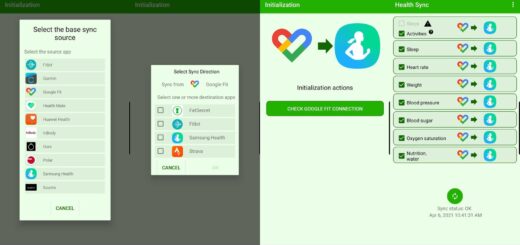Become a Digital Marketer Without a Degree Easily
Are you interested in pursuing a career in digital marketing but don’t have a college degree? You’re not alone. With the increasing demand for digital marketing professionals, many individuals are venturing into the field without a formal education. The good news is, becoming a digital marketer without a degree is not only possible but also achievable with the right skills and determination.
Before we dive into the specifics, let’s understand what digital marketing entails. As a digital marketer, you will use various channels such as social media platforms, website content, email campaigns, and advertising to connect businesses with their target audience. It’s a dynamic and ever-evolving field that requires creativity, analytical skills, and a deep understanding of consumer behavior.
So, how do you kick-start your digital marketing career without a degree? Let’s explore the steps to help you pave your way into this exciting and lucrative industry:
Key Takeaways:
- Despite not having a college degree, it is possible to become a successful digital marketer by acquiring the right skills.
- Digital marketing involves using various channels to promote products or services and connect with the target audience.
- To start your digital marketing journey, you need to decide, learn, practice, build a portfolio, network, and search for job opportunities.
- Noble Desktop offers digital marketing courses to assist you in honing your skills and staying up-to-date with industry trends.
- Building a strong portfolio is crucial in showcasing your abilities and securing a job in digital marketing.
What is a Digital Marketer?
A digital marketer is a marketing specialist who leverages various digital channels to generate leads, amplify brand awareness, and enhance the digital presence of products or services. With a deep understanding of consumer behavior and marketing strategies, digital marketers utilize social media platforms, website content, email campaigns, search engine marketing, mobile marketing, and video marketing to effectively promote goods and services to their target audience.
Digital marketers employ data-driven approaches to create detailed audience profiles and set key performance indicators (KPIs) that enable them to measure the effectiveness of their marketing campaigns. They constantly analyze data, adjust strategies, and optimize campaigns to maximize engagement and conversions. Digital marketers may work for agencies or companies and can specialize in various areas such as content marketing, search engine optimization (SEO), data analytics, or social media advertising.
“Digital marketers play a crucial role in driving business growth by developing and executing comprehensive digital marketing strategies. They craft compelling messages, identify the most effective channels, and engage with the target audience to drive desired outcomes.”
Core Responsibilities of a Digital Marketer:
- Creating and implementing digital marketing strategies to achieve specific business goals
- Managing social media accounts, including content creation, scheduling, and community management
- Developing and optimizing website content for search engine visibility
- Designing and executing email marketing campaigns for lead generation and nurturing
- Monitoring and analyzing key performance metrics to track campaign success
- Conducting market research to identify consumer trends and competitive insights
- Collaborating with cross-functional teams, such as designers and developers, to execute marketing initiatives
Being a digital marketer requires a diverse skill set and a deep understanding of the ever-changing digital landscape. Here are key skills that digital marketers should possess:
- Marketing Expertise: A solid understanding of marketing principles and strategies is essential for effectively promoting products or services in the digital space.
- Communication Skills: Clear and concise communication is necessary for delivering compelling messages to target audiences through various digital channels.
- Analytical Abilities: Strong analytical skills enable digital marketers to analyze data, track campaign performance, and make data-driven decisions.
- Creative Thinking: Digital marketers need to think outside the box and develop innovative strategies to stand out in a crowded online marketplace.
- Technical Proficiency: Proficiency in digital marketing tools, content management systems, and analytics platforms is crucial for executing campaigns and measuring their effectiveness.
Can You Really Become a Digital Marketer Without a Degree?
Yes, it is absolutely possible to become a Digital Marketer without a formal college degree. In fact, many companies are much more interested in your abilities and skills rather than your academic credentials. The field of digital marketing is highly focused on practical experience and results, making it a great career option for self-taught individuals.
While some job advertisements may mention the requirement of a degree, it should not discourage you from pursuing a career in digital marketing. Employers in this industry value hands-on knowledge and expertise more than anything else. So, if you can showcase your skills through a compelling portfolio and demonstrate your abilities through real-world projects, you can absolutely secure digital marketing jobs without a degree.
To equip yourself with the necessary knowledge and skills, there are several alternative educational options available. Bootcamps, certification programs, and online courses are excellent resources that offer comprehensive training in digital marketing. These programs cover various aspects of digital marketing, including social media marketing, content marketing, search engine optimization (SEO), and more.
By enrolling in these programs, you can gain a solid foundation in digital marketing principles and practices. You’ll learn about industry trends, effective strategies, and practical implementation techniques. Additionally, these programs often provide hands-on projects and assignments that allow you to apply your learnings in a real-world context. This hands-on experience is highly valuable when building your portfolio and securing digital marketing jobs.
One of the key advantages of pursuing a career in digital marketing without a degree is the ability to tailor your learning experience to your own needs and interests. You have the freedom to customize your education by focusing on specific areas of digital marketing that resonate with you. Whether it’s social media advertising, search engine marketing, or data analytics, you can build expertise in the areas that align with your passion and career goals.
Ultimately, your success as a digital marketer hinges on your ability to deliver results and adapt to the ever-evolving digital landscape. By investing in your learning and gaining practical experience, you can position yourself for a successful and rewarding career in digital marketing, regardless of whether or not you have a formal degree.
Steps to Become a Digital Marketer
In order to embark on a successful career as a digital marketer, there are several key steps that you can follow. Whether you have a background in marketing or are starting from scratch, these steps will guide you towards acquiring the necessary skills and knowledge to thrive in the digital marketing industry.
The first and most important step is to make the decision to start and learn about digital marketing. This involves researching and familiarizing yourself with the various aspects of the field, such as search engine optimization (SEO), social media marketing, content creation, and digital advertising.
Once you have a basic understanding of digital marketing, the next step is to acquire the necessary skills. There are numerous online resources, courses, and tutorials available that can help you develop the skills needed to excel as a digital marketer. Take advantage of these resources to learn about the latest tools, strategies, and best practices in the industry.
Building your own website is a fantastic way to apply the concepts you’ve learned and gain practical experience. By creating and managing your own website, you can practice various digital marketing techniques, such as SEO optimization, content creation, and social media management.
Additionally, becoming an SEO expert is crucial in the field of digital marketing. Search engine optimization plays a significant role in improving a website’s visibility and driving organic traffic. Invest time and effort into mastering SEO techniques and staying up-to-date with the latest algorithm changes.
Obtaining certifications is another important step on your journey to becoming a digital marketer. Certifications, such as Google Ads and Facebook Ads certifications, can enhance your credentials and demonstrate your expertise to potential employers or clients. They serve as proof of your proficiency in using these platforms for advertising and marketing purposes.
Furthermore, it is essential to become proficient in tools such as Google Analytics and other digital marketing software. These tools provide valuable insights into website traffic, user behavior, and campaign performance. Familiarize yourself with these tools and learn how to leverage them to optimize your digital marketing strategies.
Completing real-world projects and gaining work experience are invaluable steps in becoming a digital marketer. Consider freelancing or interning for companies or clients to gain hands-on experience and build your portfolio. Showcasing your successful projects and tangible results will make you stand out to potential employers or clients in the future.
All these steps, from learning the basics to gaining practical experience, are crucial in your journey to becoming a successful digital marketer. By following these steps and continually improving your skills, you will be well-equipped to navigate the constantly evolving digital landscape.
| Steps to Become a Digital Marketer |
|---|
| Make the decision to start and learn about digital marketing |
| Acquire the necessary skills through online resources, courses, and practice |
| Build your own website to apply digital marketing concepts and gain experience |
| Become proficient in SEO to improve website visibility and drive organic traffic |
| Obtain certifications such as Google Ads and Facebook Ads |
| Master digital marketing tools like Google Analytics |
| Complete real-world projects and build a portfolio |
Pros and Cons of Working in Digital Marketing
Working in digital marketing offers a range of advantages and opportunities, but it also comes with its fair share of challenges. Let’s explore the pros and cons of a career in digital marketing.
Advantages of Working in Digital Marketing
1. High Demand: Digital marketing skills are in high demand globally, providing excellent job prospects and career stability.
2. Creativity and Innovation: Digital marketing offers endless opportunities for creativity and innovation. You can craft compelling campaigns, engaging content, and unique strategies to captivate your target audience.
3. Flexibility: Many digital marketing roles offer the flexibility to work remotely, allowing you to enjoy a better work-life balance and freedom in managing your schedule.
4. Variety of Job Roles and Career Paths: Digital marketing encompasses various job roles, such as social media manager, SEO specialist, content marketer, and more. This diversity allows you to explore different paths and specialize in areas that align with your interests and strengths.
5. Potential for High Earnings and Growth: As you gain experience and expertise in digital marketing, your earning potential increases significantly. Moreover, the field is constantly evolving, providing ample opportunities for career growth and professional development.
Challenges of Working in Digital Marketing
1. High Competition and Fast-Paced Nature: The digital marketing industry is highly competitive, requiring you to stay updated with the latest trends and techniques. The fast-paced nature of the field demands quick adaptation and continuous learning.
2. Constantly Evolving Technology and Trends: Digital marketing is heavily reliant on technology and trends that are constantly evolving. Staying ahead of the curve and keeping up with new tools, algorithms, and strategies can be challenging.
3. Long Hours and Tight Deadlines: Meeting deadlines and delivering results often entail working long hours, especially during crucial campaigns or product launches.
4. Need for Strong Communication and Collaboration Skills: Effective communication and collaboration skills are vital in digital marketing. Working with team members, clients, and stakeholders requires clear and concise communication to ensure project success.
Keep in mind that the challenges in digital marketing can be outweighed by the advantages if you have a passion for the field and are willing to invest time and effort into continuous learning and skill development.
Overall, a career in digital marketing offers exciting possibilities for growth, creativity, and financial success. However, it requires dedication, adaptability, and a thirst for knowledge to thrive in this dynamic industry.
Learn the Basics of Digital Marketing
To start your journey in digital marketing, it is important to understand the basics. Familiarize yourself with the different channels and processes involved, including search engine marketing, website marketing, content marketing, email marketing, social media marketing, mobile marketing, video marketing, and affiliate marketing.
By gaining a comprehensive understanding of these essential components, you’ll be equipped to develop effective marketing strategies that reach and engage your target audience. Each channel offers unique opportunities and requires specific techniques to optimize your digital marketing efforts.
Fortunately, there are numerous online resources available to help you learn the fundamentals of digital marketing. Blogs, books, podcasts, and tools provide valuable insights, tips, and step-by-step guides to enhance your knowledge and skills. Explore these resources to expand your understanding and stay up to date with the latest trends and best practices in the industry.
Remember, building a strong foundation in digital marketing basics will pave the way for success in your career as a digital marketer.

Benefits of Understanding Digital Marketing Basics
“Knowing the basics of digital marketing is essential for any marketer or business owner looking to succeed in today’s digital landscape. It lays the groundwork for effective marketing strategies, helps you leverage various channels, and maximizes your online presence.”
– Digital Marketing Expert
Here are some advantages of understanding digital marketing basics:
| Advantages | Explanation |
|---|---|
| 1. Targeted Audience Reach | Learn how to identify and reach your target audience effectively through different digital channels. |
| 2. Enhanced Brand Awareness | Utilize various marketing techniques to strengthen your brand’s visibility and recognition online. |
| 3. Increased Customer Engagement | Discover strategies to engage and interact with your audience, fostering meaningful connections and loyalty. |
| 4. Improved Conversion Rates | Optimize your campaigns to drive more conversions, ensuring your digital marketing efforts translate into tangible results. |
| 5. Cost-Effective Marketing | Make the most of your marketing budget by leveraging digital channels that offer cost-effective advertising options. |
| 6. Measurable Results | Learn how to track and analyze the performance of your campaigns, gaining valuable insights for continuous improvement. |
Understanding the basics of digital marketing empowers you to make informed decisions and create impactful strategies that drive your business forward.
Start Your Own Website
Creating and managing your own website is a fantastic way to apply various digital marketing concepts in real-world scenarios. With your own website, you have the opportunity to practice and develop essential skills such as SEO, content marketing, social media marketing, and paid advertising. By actively implementing these strategies, you can gain hands-on experience and enhance your proficiency in digital marketing techniques.
Moreover, having your own website offers a platform to showcase your skills and build an influential personal brand. As you produce high-quality content, engage with your target audience, and optimize your website for search engines, you demonstrate your expertise to potential clients or employers. Establishing a strong online presence through your personal website can open up new opportunities for freelance projects, job opportunities, and networking connections in the digital marketing industry.

Take advantage of the freedom and flexibility that comes with managing your own website. Utilize it as a testing ground to experiment with different marketing strategies, analyze data, and adapt your approaches based on real-time results. By continuously refining your techniques and tracking your website’s performance, you can refine your skills and stay ahead of the ever-changing digital marketing landscape.
“Your website is your digital marketing playground—a space to practice, learn, and discover what works best for your target audience.”
Remember that your website serves as a reflection of your capabilities and expertise. Create a user-friendly design, produce valuable and engaging content, and prioritize optimizing your website for search engines. Focus on building a seamless user experience that captures the attention of your audience and drives conversions. As you develop and refine your personal website, you not only enhance your digital marketing skills but also build credibility and trust among potential clients and employers.
Key Benefits of Starting Your Own Website:
- Practice and refine digital marketing strategies
- Showcase your skills and build a personal brand
- Experiment with different marketing techniques
- Gain hands-on experience and stay updated with industry trends
- Create a platform to attract potential clients or employers
- Build credibility and trust in the digital marketing field
Starting your own website is a significant step towards becoming a proficient digital marketer. It offers a space to practice, learn, and implement various marketing strategies while building a strong personal brand. Embrace the opportunity to create, manage, and optimize your website, and watch your digital marketing skills soar to new heights.
Get Certified and Gain Experience
As a digital marketer, obtaining industry certifications can greatly enhance your credentials and provide credibility to potential employers or clients. One highly regarded certification is the Google Ads certification, which showcases your proficiency in managing Google Ads campaigns effectively.
Gaining real-world experience is equally important in your journey toward becoming a successful digital marketer. To gain practical experience, you can consider taking on freelance projects in digital marketing. Freelancing not only allows you to apply your skills but also provides the opportunity to work with diverse clients and industries. Additionally, volunteering your digital marketing expertise for non-profit organizations or local businesses can help you build a solid foundation of practical experience.
Another valuable avenue to gain experience is by working as a digital marketing intern. Internships provide hands-on learning opportunities and allow you to work alongside experienced professionals in the field. This experience not only strengthens your skillset but also helps you establish valuable industry connections.
Along with certifications and work experience, building a portfolio is essential in demonstrating your abilities to potential employers or clients. Your portfolio should showcase your previous projects, the results you achieved, and highlight your expertise in various digital marketing strategies such as SEO, social media marketing, content marketing, and more.
Digital Marketing Certifications
The table below outlines some popular digital marketing certifications that can boost your professional profile and enhance your chances of securing freelance or full-time digital marketing jobs:
| Certification | Description | Provider |
|---|---|---|
| Google Ads Certification | Validates your expertise in managing Google Ads campaigns and demonstrates your proficiency in using Google Ads tools effectively. | |
| Google Analytics Individual Qualification (IQ) | Validates your knowledge and skills in using Google Analytics to analyze website traffic and optimize digital marketing strategies. | |
| HubSpot Inbound Marketing Certification | Covers the fundamentals of inbound marketing, including content creation, lead nurturing, and marketing automation. | HubSpot |
| Facebook Certified Digital Marketing Associate | Validates your proficiency in using Facebook’s advertising products and implementing effective Facebook marketing strategies. | |
| Hootsuite Social Media Marketing Certification | Validates your understanding of social media marketing strategies, analytics, and effective use of the Hootsuite social media management platform. | Hootsuite |
By obtaining relevant certifications, gaining practical experience, and building an impressive portfolio, you can position yourself as a highly skilled and competitive digital marketer ready to take on freelance opportunities or secure full-time digital marketing positions.
Conclusion
Becoming a digital marketer without a degree is a viable career path for those willing to acquire the necessary skills, gain practical experience, and build a strong portfolio. While formal education can be advantageous, it is not a prerequisite for success in the dynamic field of digital marketing.
To start your journey, it is essential to learn the basics of digital marketing and familiarize yourself with various channels and strategies, such as search engine optimization (SEO), social media advertising, and analytics tools. Additionally, starting your own website allows you to apply these concepts in real-world scenarios and establish a personal brand.
Gaining certifications, like Google Ads, can provide credibility and demonstrate your expertise to potential employers or clients. Furthermore, obtaining practical experience through freelance projects, internships, or volunteering is invaluable in showcasing your abilities and building a portfolio that highlights your skills and results.
With dedication, continuous learning, and practical experience, you can forge a successful career as a self-taught digital marketer. Embrace the ever-evolving nature of the field, stay up to date with industry trends, and leverage your creativity and analytical skills to navigate the digital marketing landscape and achieve professional growth.
FAQ
Can I become a digital marketer without a college degree?
Yes, it is possible to become a digital marketer without a degree. Many companies value skills and abilities over formal education. Building a strong portfolio and demonstrating your expertise through real-world projects can help you secure a job in digital marketing.
What is a digital marketer?
A digital marketer is a marketing specialist who uses various digital channels to promote products or services. They utilize platforms like social media, websites, email campaigns, and video marketing to reach and engage a specific target audience. Digital marketers may specialize in areas such as content marketing, SEO, or data analytics.
How can I start my journey to become a digital marketer?
To start your journey in digital marketing, you can learn the basics through online resources and courses. Building your own website and applying different digital marketing concepts can help you gain practical experience. Getting certified in Google Ads, becoming proficient in SEO, and learning how to use digital marketing tools are also important steps.
What are the pros and cons of working in digital marketing?
Working in digital marketing offers advantages such as a high demand for digital marketing skills, opportunities for creativity and innovation, flexibility to work remotely, and potential for high earnings and growth. However, it also has challenges like high competition, constantly evolving technology, long hours, and the need for strong communication and collaboration skills.
How can I learn the basics of digital marketing?
To learn the basics of digital marketing, you can explore online resources such as blogs, books, podcasts, and tools. Understanding channels such as search engine marketing, content marketing, social media marketing, and email marketing is crucial in building a strong foundation.
Is it important to start my own website to learn digital marketing?
Starting your own website is a great way to apply different digital marketing concepts in real-world scenarios. By creating and managing your website, you can practice techniques like SEO, content marketing, social media marketing, and paid advertising. It also allows you to showcase your skills and build a personal brand.
Should I get certified in digital marketing?
Getting certified in digital marketing, such as Google Ads certification, can provide credibility and showcase your skills to potential employers or clients. However, practical experience and a strong portfolio are equally important in demonstrating your abilities in the field.
How can I gain work experience in digital marketing?
You can gain work experience in digital marketing by taking on freelance projects, volunteering, or working as a digital marketing intern. Building a portfolio that showcases your work and results is crucial in proving your abilities to potential employers or clients.
Can I become a digital marketer without a degree?
Yes, it is possible to become a digital marketer without a college degree. By acquiring the necessary skills, gaining experience, and building a strong portfolio, you can have a successful career in digital marketing.
















It's great that you talked about how business insurance can provide financial protection against unexpected events and help ensure the…
I like that you mentioned how business insurance is essential for protecting your bottom line and the long-term viability of…